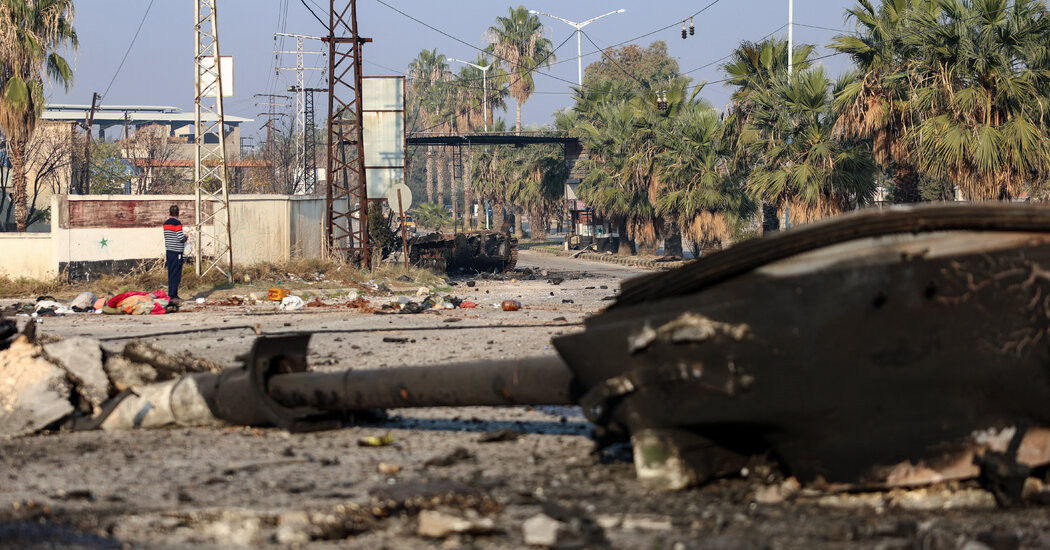

With the fall of President Bashar al-Assad of Syria, Vladimir V. Putin has suffered one of the biggest geopolitical setbacks of his quarter-century in power.
Lines of Russian troops in desert khaki greeted President Vladimir V. Putin in Syria in 2017. Declaring that Moscow had accomplished its mission in Syria’s civil war, Mr. Putin pledged that Russia was there to stay.
“If the terrorists raise their heads again,” he said on the tarmac of a Russian air base, “we will deal unprecedented strikes unlike anything they have seen.”
But over the last two weeks, as rebels who Russia called terrorists swept across Syria aiming to topple one of Russia’s closest allies, President Bashar al-Assad, those “unprecedented” strikes were nowhere to be seen. Instead, with Mr. al-Assad’s ouster on Sunday, Mr. Putin has suffered one of the biggest geopolitical setbacks of his quarter-century in power.
He took that blow, analysts said, in large part because his military is bogged down in Ukraine.
“Our involvement over there had a cost,” a Moscow-based analyst focusing on the Middle East, Anton Mardasov, said, referring to Russia’s war in Ukraine. “The cost was Syria.”
By Sunday, Russia had been reduced from kingmaker to bystander. Its foreign ministry issued a statement of “extreme concern” about “the dramatic events” and announced that Mr. al-Assad had left the country. Dmitri S. Peskov, the Kremlin’s spokesman, told Russian news agencies that he had nothing to add. Mr. Putin himself has said nothing about Syria in recent weeks.